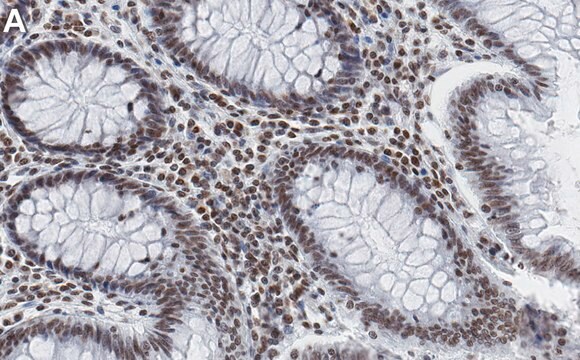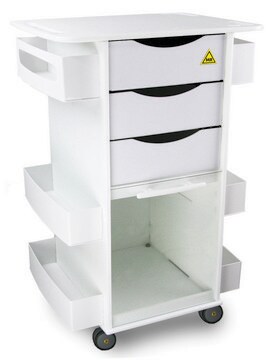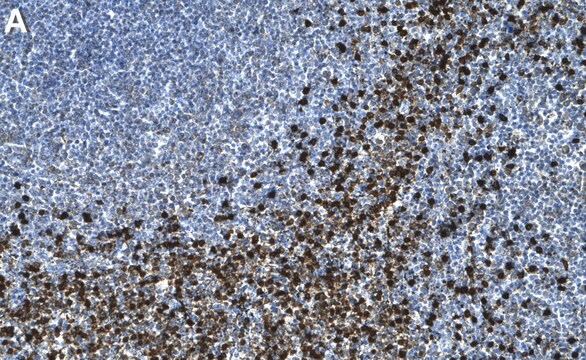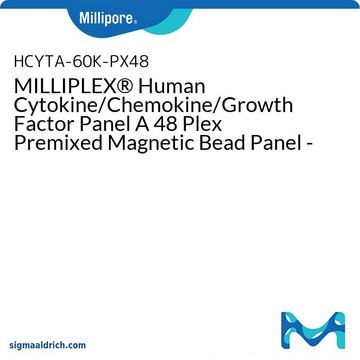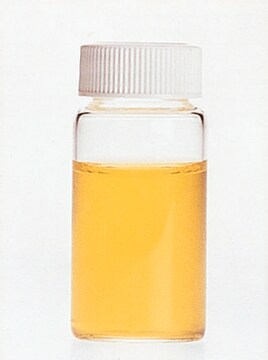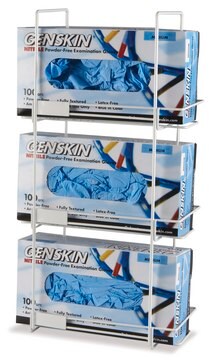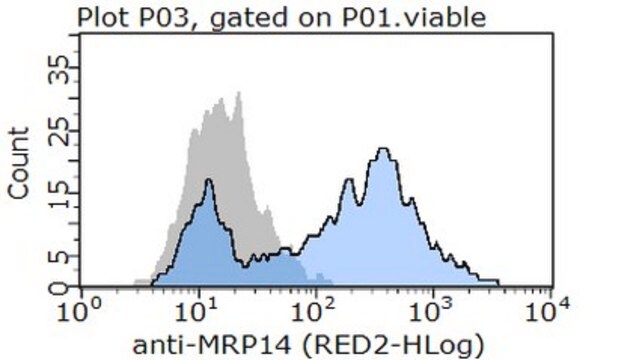ZMS1122
Anti-MRP-8/14 Antibody, clone AHN-17 ZooMAb® Mouse Monoclonal

recombinant, expressed in HEK 293 cells
Synonym(e):
Protein S100-A8/9;MRP-8/MRP-14;Leukocyte L1 complex light chain/ Leukocyte L1 complex heavy chain;p8/p14;S100 calcium-binding protein A8/A9
About This Item
Empfohlene Produkte
Biologische Quelle
mouse
Qualitätsniveau
Rekombinant
expressed in HEK 293 cells
Konjugat
unconjugated
Antikörperform
purified antibody
Antikörper-Produkttyp
primary antibodies
Klon
AHN-17, recombinant monoclonal
Produktlinie
ZooMAb® learn more
Form
lyophilized
Mol-Gew.
calculated mol wt 13.24 kDa
Aufgereinigt durch
using protein G
Speziesreaktivität
human
Verpackung
antibody small pack of 25 μL
Grünere Alternativprodukt-Eigenschaften
Waste Prevention
Designing Safer Chemicals
Design for Energy Efficiency
Learn more about the Principles of Green Chemistry.
Erweiterte Validierung
recombinant expression
Learn more about Antibody Enhanced Validation
sustainability
Greener Alternative Product
Methode(n)
ELISA: suitable
affinity binding assay: suitable
immunocytochemistry: suitable
immunohistochemistry: suitable
Isotyp
IgG1
Epitopsequenz
Unknown
Protein-ID-Hinterlegungsnummer
UniProt-Hinterlegungsnummer
Grünere Alternativprodukt-Kategorie
Versandbedingung
ambient
Lagertemp.
2-8°C
Posttranslationale Modifikation Target
unmodified
Allgemeine Beschreibung
Spezifität
Immunogen
Anwendung
Evaluated by Immunohistochemistry (Paraffin) in human tonsil tissue sections.
Immunohistochemistry (Paraffin) Analysis: A 1:100 dilution of this antibody detected MRP-8/14 in human tonsil tissue sections.
Tested applications
Affinity Binding Assay: A representative lot of this antibody bound recombinant human MRP-8/14 protein with a KD of 8.7 x 10-6 in an affinity binding assay.
Enzyme Immunoassay Analysis (ELISA): Serial dilutions from a representative lot detected recombinant human MRP-8/14.
Immunocytochemistry Analysis: A 1:100 dilution from a representative lot detected MRP-8/14 in HL-60 cells.
Note: Actual optimal working dilutions must be determined by end user as specimens, and experimental conditions may vary with the end user
Evaluated by Immunohistochemistry (Paraffin) in human tonsil tissue sections.
Immunohistochemistry (Paraffin) Analysis: A 1:100 dilution of this antibody detected MRP-8/14 in human tonsil tissue sections.
Zielbeschreibung
Physikalische Form
Lagerung und Haltbarkeit
Rechtliche Hinweise
Haftungsausschluss
Sie haben nicht das passende Produkt gefunden?
Probieren Sie unser Produkt-Auswahlhilfe. aus.
Lagerklassenschlüssel
11 - Combustible Solids
WGK
WGK 1
Flammpunkt (°F)
Not applicable
Flammpunkt (°C)
Not applicable
Hier finden Sie alle aktuellen Versionen:
Analysenzertifikate (COA)
Die passende Version wird nicht angezeigt?
Wenn Sie eine bestimmte Version benötigen, können Sie anhand der Lot- oder Chargennummer nach einem spezifischen Zertifikat suchen.
Besitzen Sie dieses Produkt bereits?
In der Dokumentenbibliothek finden Sie die Dokumentation zu den Produkten, die Sie kürzlich erworben haben.
Unser Team von Wissenschaftlern verfügt über Erfahrung in allen Forschungsbereichen einschließlich Life Science, Materialwissenschaften, chemischer Synthese, Chromatographie, Analytik und vielen mehr..
Setzen Sie sich mit dem technischen Dienst in Verbindung.